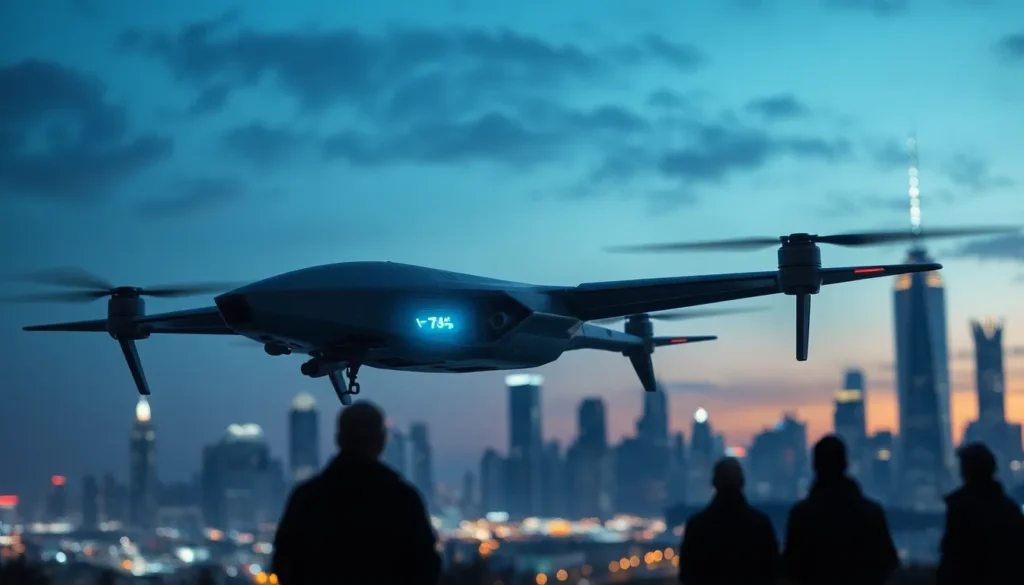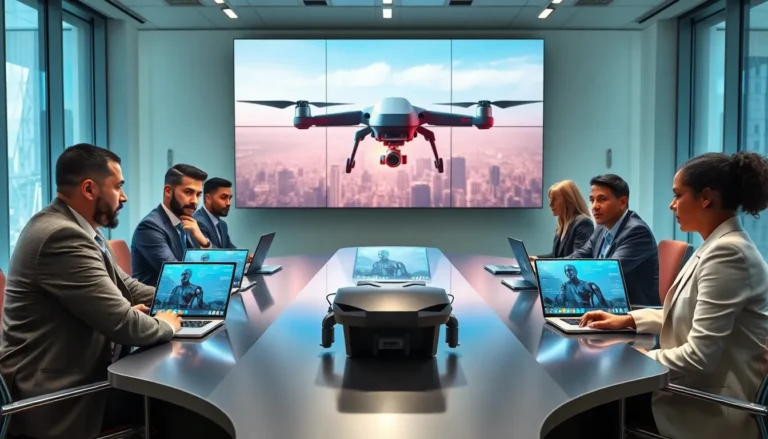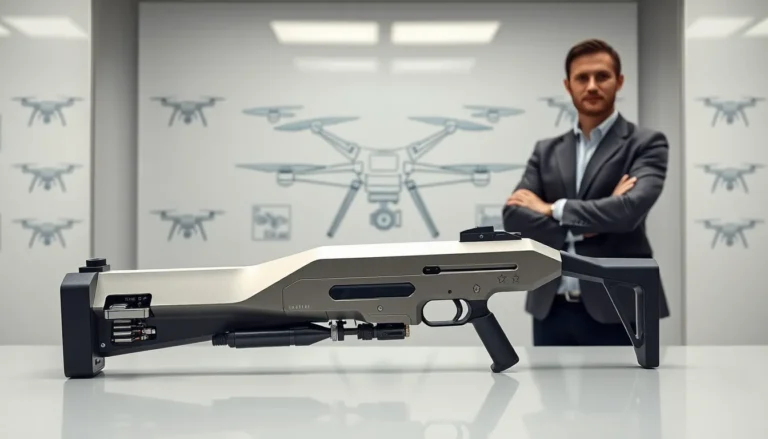Table of Contents
ToggleIn a world where technology evolves faster than you can say ‘artificial intelligence,’ it seems we’ve stumbled upon a disturbingly hot topic: murder drones. These aren’t the aerial delivery systems promising your rightfully deserved pizza at 20 minutes or less. No, we’re talking about a whole new level of automation in warfare. Imagine a world where drones decide who lives and who… well, doesn’t. It’s both mesmerizing and terrifying, right? As this technology develops, it raises serious questions about ethics, accountability, and the very nature of warfare itself. Buckle up: it’s going to be a bumpy ride through the skies of debate.
What Are Murder Drones?

Murder drones, in the simplest terms, refer to unmanned aerial vehicles (UAVs) designed for lethal combat. These are not your average recreational drones: they are equipped with advanced weaponry and often capable of making independent decisions about targeting. Imagine an aircraft operated not by a human pilot but by software, algorithms crunching data and deciding within milliseconds whether to engage an enemy target. This technology raises a serious question: how much autonomy should be granted to machines in the context of life and death? To some, these drones represent a chilling future where machines, lacking moral reasoning, dictate the fate of human lives.
The Evolution of Drone Technology
Drone technology has undergone a rapid transformation since its inception. Initially developed for surveillance purposes during the Vietnam War, drones have now evolved to include a plethora of functions, from reconnaissance and target acquisition to combat operations. The military began deploying armed drones like the MQ-1 Predator in the late 1990s, showcasing their effectiveness in eliminating threats without risking human lives. Fast forward to today, drone technology embodies cutting-edge advancements in robotics, navigation systems, and weaponry integration. These drones now feature artificial intelligence, enabling them to perform complex tasks with reduced human intervention. Such sophistication is impressive, yet it poses significant ethical dilemmas.
AI’s Role in Drone Warfare
Artificial intelligence is woven into the fabric of modern drone warfare. With the ability to process vast amounts of data in real-time, AI enables drones to identify and engage targets with incredible precision. Machine learning algorithms allow drones to learn from previous encounters, adapting their strategies based on past outcomes. The potential for increased efficiency and reduced collateral damage can be enticing. But, the more autonomous these machines become, the more concerns arise about accountability. If an AI-driven drone mistakenly identifies a civilian as a hostile target, who is responsible for that decision? This question underscores the unreasonable risk such technology poses, affecting not just combatants but innocent bystanders as well.
Ethical Considerations of Murder Drones
The ethical implications reach far beyond technology itself. Critics argue that delegating life-and-death decisions to machines is fundamentally wrong. A drone lacks empathy and moral judgment, qualities integral to human decision-making. The risk of dehumanizing warfare is significant. Battlegrounds could evolve into sterile environments where lives are taken without the weight of emotion or consequence. Besides, the erosion of accountability presents a dangerous precedent. With governments and military entities embracing the technology, it’s imperative to consider how this might change the laws of engagement and ethical norms in warfare. Will we still adhere to the principles of just war theory, or will we enter a new age defined by AI-driven conflict?
Regulation and Governance of Military Drones
The lack of clear regulations surrounding the use of murder drones complicates the conversation. While many countries are still developing their drone policies, others are racing ahead, deploying these technologies without comprehensive legal frameworks. The potential for misuse and ethical violations looms large. International bodies like the United Nations have initiated discussions on regulating autonomous weapons, yet progress is painfully slow. Striking a balance between technological advancement and ethical governance is crucial. What’s needed is a unified global approach that comprehensively addresses the implications of AI in military contexts.
Future Implications of AI in Warfare
As we peer into the future of warfare, it’s evident that AI will play an increasingly dominant role. The battlefield is evolving, and with it comes a new array of challenges. Will we see a rise in AI-enhanced combat strategies, making traditional military tactics obsolete? How will conflicts develop when machines can detect and neutralize threats within milliseconds? The potential is both exciting and daunting. Consider that future conflicts might involve a race not just of technology, but of ethics. Society must grapple with how to integrate these advanced capabilities responsibly. Developing international norms surrounding AI in warfare will be essential in maintaining order and safeguarding human rights as military technology continues to advance.







